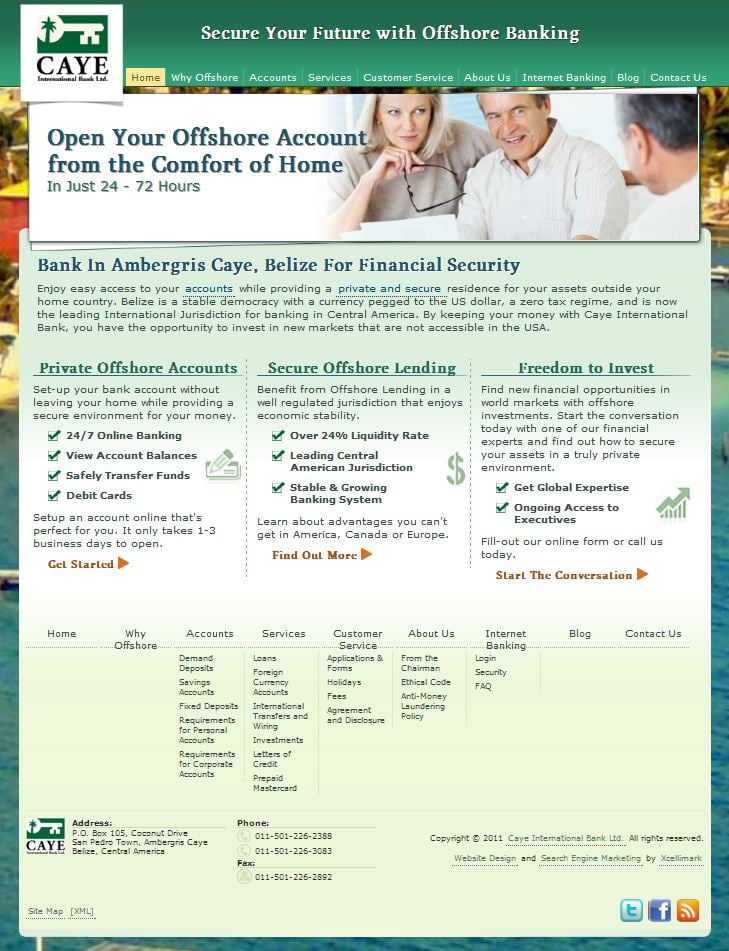Offshore Company Formation: Your Path to International Success
Offshore Company Formation: Your Path to International Success
Blog Article
Recognizing the Legal Implications of Offshore Firm Formation

Lawful Framework for Offshore Business
When establishing an offshore business, understanding the lawful structure governing its development and procedure is critical for conformity and threat administration. Offshore business operate under certain laws and guidelines that differ from those of onshore entities. The lawful framework for overseas business typically consists of arrangements for business enrollment, investor demands, director duties, and tax responsibilities.
Company registration includes sending the necessary paperwork to the appropriate governing authorities in the chosen territory. This process typically needs comprehensive information about the company's framework, shareholders, and designated activities. Furthermore, overseas companies must comply with specific shareholder requirements, such as maintaining a register of investors and keeping this details as much as day.
Directors of overseas firms have fiduciary obligations to act in the most effective rate of interests of the company and its investors. They are in charge of supervising the company's operations, making sure conformity with all relevant laws, and handling dangers effectively. Recognizing the tax commitments of an offshore business is essential to stay clear of any prospective legal concerns. By adhering to the lawful framework regulating overseas companies, companies can operate with self-confidence while lessening legal risks.


Tax Effects and Rules
Recognizing the tax ramifications and regulations is paramount when thinking about the facility and procedure of an overseas firm. Offshore companies are usually subject to desirable tax routines, using minimized or absolutely no tax obligation prices on foreign-earned revenue.
Tax laws for overseas companies vary significantly across territories, and it is essential to seek expert recommendations to recognize the details requirements and obligations. Extensive knowledge of tax obligation legislations and guidelines, as well as correct tax preparation, are necessary to guarantee the effective and certified operation of an overseas company.
Conformity Requirements and Reporting
Making certain compliance with governing needs and maintaining precise reporting are important aspects of taking care of an overseas business efficiently and transparently. Offshore firms have to stick to the legislations and policies of both the territory in which they are incorporated and any kind of various other relevant jurisdictions where they perform business. Compliance needs usually consist of submitting yearly returns, economic statements, and tax reports with the proper authorities. Failing to satisfy these commitments can lead to fines, penalties, or perhaps the revocation of the firm's enrollment.
In addition to regulatory compliance, overseas business are often based on reporting needs to guarantee openness and avoid unlawful tasks such as cash laundering or tax evasion. Reporting obligations may involve disclosing details regarding the company's possession framework, economic tasks, and beneficiaries. This info may require to be shown regulatory bodies, tax obligation authorities, or other governmental firms, relying on the territory.
Keeping thorough and precise records is vital for demonstrating compliance and reacting to any questions or audits successfully. Offshore business should apply durable reporting mechanisms and internal controls to make certain Recommended Site that they satisfy all lawful needs and run with honesty.
Property Security and Personal Privacy Regulations
In the realm of offshore firm formation, a vital factor to consider is her comment is here the interaction in between asset defense techniques and personal privacy legislations. Offshore jurisdictions commonly use enhanced asset security devices that secure properties from potential dangers such as lawsuits, creditors, or political instability in the home country. By structuring properties within an overseas firm, people can guard their wide range and expand their holdings across different lawful frameworks. In addition, privacy laws in overseas jurisdictions add to preserving discretion and privacy for business proprietors. These legislations restrict the disclosure of delicate information, making it challenging for exterior celebrations to gain access to details concerning the business's procedures or ownership framework. This level of personal privacy can be helpful for people seeking to safeguard their properties from public analysis or rivals. It is essential for individuals to navigate these legislations fairly and transparently, ensuring compliance with both overseas policies and the lawful requirements of their home country. Eventually, understanding the elaborate connection in between possession security methods and personal privacy laws is vital when taking into consideration offshore firm development.
Dangers and Difficulties to Take into consideration
When venturing right into overseas business formation, sensible factor to consider of possible dangers and challenges is necessary for notified decision-making and strategic preparation. Furthermore, political instability or modifications in offshore territories can present a risk to the continuity of operations and the protection of properties held by the offshore business.
Difficulties may likewise arise concerning the complexity of overseas firm structures and the need for skilled legal and financial suggestions to browse the elaborate regulative structures of various jurisdictions (offshore company formation). Preserving conformity with differing international laws and guidelines, as well as possible language barriers and cultural differences, can further make complex the offshore firm development process. It is vital to be familiar with these dangers and challenges prior to waging overseas firm development to reduce prospective challenges and guarantee a smooth and lawfully audio establishment
Conclusion
In conclusion, overseas business development entails browsing complex legal structures, tax obligation implications, conformity demands, and privacy laws. Recognizing these facets is essential for reducing threats and difficulties related to overseas service procedures. It is essential for organizations and individuals thinking about overseas business formation to seek professional support to guarantee compliance with laws and to safeguard their properties effectively.
The legal framework for overseas firms normally consists of arrangements for company registration, investor demands, supervisor responsibilities, navigate to this website and tax responsibilities.
Supervisors of offshore firms have fiduciary responsibilities to act in the finest rate of interests of the company and its shareholders. By sticking to the lawful structure regulating offshore business, companies can run with confidence while decreasing legal dangers.
Furthermore, political instability or adjustments in offshore territories can present a threat to the continuity of operations and the defense of assets held by the overseas firm. - offshore company formation
In verdict, offshore firm development includes navigating complex legal frameworks, tax obligation ramifications, conformity needs, and personal privacy regulations.
Report this page